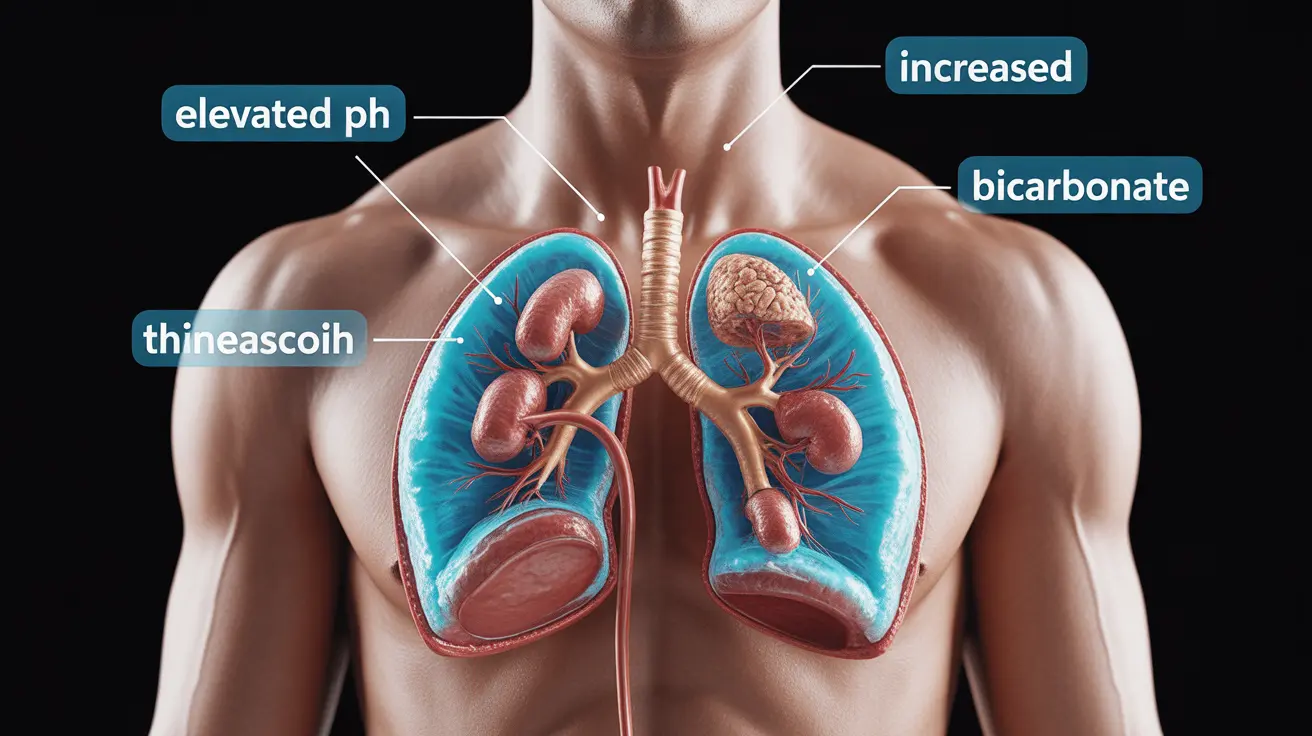Metabolic alkalosis is a serious acid-base imbalance where the body becomes too alkaline, characterized by elevated blood pH levels and bicarbonate concentrations. This condition can develop from various causes and may lead to significant health complications if not properly addressed. Understanding its symptoms, causes, and treatment options is crucial for both healthcare providers and patients.
While metabolic alkalosis might not be as widely discussed as other medical conditions, its impact on health can be substantial, affecting everything from breathing patterns to heart function. This comprehensive guide explores the key aspects of metabolic alkalosis, including its various causes, diagnostic approaches, and treatment strategies.
Understanding Metabolic Alkalosis
Metabolic alkalosis occurs when the body loses too much acid or gains too much base, disrupting the delicate pH balance necessary for optimal bodily functions. This condition can be categorized into two main types: chloride-responsive and chloride-resistant alkalosis, each requiring different treatment approaches.
Common Causes and Risk Factors
Several factors can contribute to the development of metabolic alkalosis:
- Excessive vomiting or nasogastric suction
- Diuretic therapy
- Severe dehydration
- Primary aldosteronism
- Cushing's syndrome
- Excessive antacid consumption
- Certain medications
Signs and Symptoms
The symptoms of metabolic alkalosis can vary in severity and may include:
- Confusion or mental status changes
- Muscle twitching and cramping
- Hand tremors
- Nausea and vomiting
- Numbness or tingling
- Irregular heartbeat
- Respiratory difficulties
Diagnostic Process
Healthcare providers typically diagnose metabolic alkalosis through several methods, including comprehensive blood tests that measure blood gases, electrolytes, and pH levels. Additional tests may be necessary to determine the underlying cause of the condition.
Treatment Approaches
Treatment for metabolic alkalosis varies depending on its severity and underlying cause. The primary goal is to restore normal pH balance while addressing the root cause of the condition.
Chloride-Responsive Cases
For chloride-responsive metabolic alkalosis, treatment typically involves:
- Fluid replacement therapy
- Electrolyte supplementation
- Correction of underlying chloride deficiency
- Management of vomiting or gastric losses
Chloride-Resistant Cases
Chloride-resistant cases often require more specialized treatment approaches:
- Specific medications to address hormonal imbalances
- Treatment of underlying conditions
- Careful monitoring of kidney function
- Adjustment of existing medications
Prevention and Management
Several lifestyle modifications and preventive measures can help manage or prevent metabolic alkalosis:
- Maintaining proper hydration
- Following a balanced diet
- Regular monitoring of medications
- Prompt treatment of underlying conditions
- Regular medical check-ups
Frequently Asked Questions
What are the symptoms of metabolic alkalosis, and how is it typically diagnosed?
Metabolic alkalosis typically presents with symptoms such as confusion, muscle twitching, tremors, and breathing difficulties. Diagnosis involves blood tests measuring pH levels, blood gases, and electrolytes, along with clinical evaluation of symptoms and medical history.
How is metabolic alkalosis treated, and what are the differences in treatment between chloride-responsive and chloride-resistant cases?
Treatment varies based on the type. Chloride-responsive cases often require fluid and electrolyte replacement, while chloride-resistant cases may need specific medications and treatment of underlying hormonal conditions. The key difference lies in how the body responds to chloride supplementation.
Can lifestyle changes help manage or prevent metabolic alkalosis, and if so, what dietary adjustments are recommended?
Yes, lifestyle changes can help prevent metabolic alkalosis. Key recommendations include maintaining proper hydration, following a balanced diet rich in essential minerals, avoiding excessive use of antacids, and regular monitoring of medications that might affect pH balance.
What causes metabolic alkalosis in patients with underlying conditions like liver or kidney disease?
In patients with liver or kidney disease, metabolic alkalosis can develop due to impaired acid-base regulation, electrolyte imbalances, and medication side effects. These conditions can affect the body's ability to maintain proper pH balance and process minerals effectively.
How does prolonged vomiting or diarrhea contribute to the development of metabolic alkalosis, and what are the potential complications if left untreated?
Prolonged vomiting leads to significant loss of stomach acid and chloride, triggering metabolic alkalosis. If untreated, complications can include severe electrolyte imbalances, cardiac arrhythmias, respiratory problems, and in severe cases, neurological complications.




